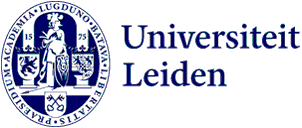
Introducing: Márcia Gonçalves
Márcia Gonçalves recently joined the Institute for History as Marie Skłodowska-Curie Fellow and specialises in the history of modern European colonialism (19th-20th Centuries). Below she introduces herself!
I joined the Institute for History in February 2022, having arrived in Leiden when the Netherlands was recording the highest number of new infections with the coronavirus since the outbreak of the pandemic. I found it quite ironic since I had postponed the start of my Marie Skłodowska-Curie Individual Fellowship for a full semester because of COVID-19. Fortunately, the situation has greatly improved at the time I write these lines – and let’s hope it remains so by the time you read them. I am looking forward to meeting new colleagues once everyone returns to the Johan Huizinga building.
I specialise in the history of modern European colonialism (19th-20th Centuries), having obtained my PhD at the European University Institute. My doctoral thesis, which will be published shortly, explored how the link between nation and empire was imagined in Portugal in the 1930s and 1940s, i.e. during the first decades of Salazar’s dictatorship. Moving away from high politics and official propaganda it showed that the imperially constituted notion of Portuguese national identity was far from the monolithic bloc popularised by the regime’s political elites to promote a sense of belonging to a great nation. Rather, it was constantly negotiated by different actors, being adapted and readapted in response to international challenges and global transformations in order to serve as an instrument of legitimation of Portuguese colonial practices.

Identities, and especially their pliable and contradictory nature, continue at the heart of my research interests. However, my focus is quite different this time. My new project explores what it meant to be European in colonial Africa, where identification as European often did not depend on skin colour and was understood on a spectrum with many gradients. I will take the Portuguese in the Congo Free State as a point of departure. This choice is not only due to their long-lasting presence in the territory, preceding the establishment of the Congo Free State as Belgian King Leopold II’s personal possession. It is also related to the fact that the Portuguese had long been perceived as ‘not quite white’, an idea supported by the creation of typologies of European races and scientific racialism in the late nineteenth century. By doing so, I hope to bring nuance and complexity into discussions of colonial European identities, which tend to take only Northern Europe as the norm of ‘Europeanness’.
Prior to joining the Institute, I worked several years outside of academia. This experience gave me a new perspective on academic life and reaffirmed my passion for doing historical research, which is much larger than I previously imagined. I am very happy that I can pursue it in a world leading research centre in global history like Leiden’s Institute for History. But the best part of having an unconventional career path is that the European Commission granted me a three-year fellowship to restart my academic career, instead of the regular 24 months! So, you will see me around for a long time – probably on my way to one of the pantries to refill my teapot – and I hope I will get to know and share ideas with many of you in the coming years.
